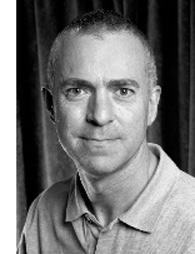International Queer Asian Studies Conference to be held in Sydney Feb 21-23

Conference co-organiser Peter Jackson of Australian National University
First held in 2005 in Bangkok by the AsiaPacifiQueer Network (APQ) founded by academic Peter Jackson of Australian National University in Canberra, the conference will feature keynote addresses from major figures in Asian queer scholarship and a series of themed panel streams on intra-Asia/Pacific queer cultural flows.
Jackson said he founded the APQ to combat the difficulties of conducting queer Asian research in Australia and getting funding.
"Queer studies have been minoritised in the university system," he says. "People submitting applications for queer projects are advised to make the title sound straight or you'll be very unlikely to get funding."
He hopes that in having an international conference, it lends more creditability to the field of queer related research in Asia.
Keynote speakers include Rosanna Flamer-Caldera of Sri Lanka, Co-Secretary General of the International Lesbian and Gay Association [ILGA]; Prof. Neil Garcia of University of the Philippines, Diliman; Dr Chandra Shekhar Balanchandran of Dharani Trust, Bangalore, India and Dr D�d� Oetomo of Surabaya University & GAYa Nusantara, Indonesia.
Queer Asian Sites is held in collaboration with the Trans/forming Cultures (TfC) Key University Research Centre in Communication and Culture from Feb 21-23 and the Queer Space: Centres and Peripheries Conference convened by the UTS Centre for Social Theory and Design in the Faculty of Design Architecture and Building on Feb 20 & 21. For more info, visit apq.anu.edu.au/qas.
Civil Union Law Takes Effect in New Jersey
New Jersey has became the third state in the US to offer civil unions and granting registered same-sex couples new legal rights.
Under the new laws, New Jersey couples who had previously been joined in civil unions or married in other states or nations were automatically granted the legal benefits but not the title of marriage.
Couples who want to be in a partnership could apply for licenses but must wait 72 hours before they can hold civil union ceremonies, the same waiting period for weddings.
Vermont and Connecticut are the other two states that allow gay couples to be joined in civil unions while California offers broadly similar rights under the title of domestic partnerships. Massachusetts is the only state that recognises gay marriage with the same legal rights as heterosexual unions. The US federal government and 45 states however do not recognise the unions.
New Jersey lawmakers created civil unions in December, less than two months after a state Supreme Court decision held that gay couples had a right to the same benefits as married couples.
Italy: government officials and Vatican leaders meet as civil union debate rages
Leaders of Italy's government including Prime Minister Romano Prodi and senior Vatican officials opposed to the bill held closed-door talks on Monday as a proposed law to recognise unwed and gay couples has drawn sharp criticism from the Catholic Church
The proposed legislation recognises relations between gays, unmarried heterosexual couples and others who choose to live together, granting rights in areas like inheritance and health care and greater access to joint health schemes, pensions, state housing and jobs.
The Vatican and some Catholic fear this would lead to what they call "pseudo-marriages" for gays in civil ceremonies, undermining the traditional Christian family based on marriage between men and women.
The bill probably will be voted on in the Senate.
Moscow lawmaker sponsors bill to recriminalise gays
A Russian lawmaker has introduced a bill to recriminalise homosexuality, punishable with a five-year prison sentence for anyone found convicted of gay sex. Gay sex was illegal and punishable by five years of hard labour until 1993 when Communism fell.
The bill, introduced into Russia's lower house by Deputy Nikolay Kuryanovich, would prohibit gays to congregate - essentially ban gay Pride parades or meetings.
The bill follows a civil rights lawsuit filed by pride organisers at the European Court of Human Rights against the city of Moscow and mayor Yury Luzhkov over the city's ban of a pride march in 2006.
On May 27, marchers attempted to hold a parade despite the ban which resulted in the Police having to arrest both marchers and protestors. Earlier in May police had to form a human chain to hold back some 150 skinheads and Russian Orthodox Church supporters protesting a gay event at a Moscow club.
No political party has supported the bill publicly although Kuryanovich, who is not affiliated with any party, is believed to have widespread support from former Communists and parties allied to the Russian Orthodox Church.
Russian gay activists have meanwhile pledged to hold a march in May in defiance of a ban.
